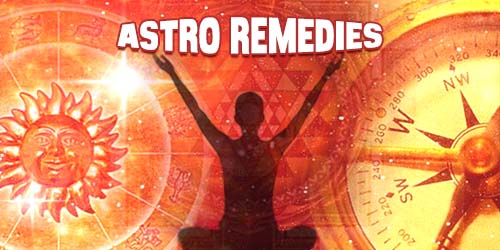Remedies in Astrology

BPHS clearly mentions three remedial actions Jap ( Recitation ) Havan( fire rituals) Daan ( donation). These help you keep a level head and stable mind in bad times and in better periods it does not let you be the slave of maya or in other words, it does not let your success to go up to your head. So please do not be led astray by the videos and words of jugglers in the guise of astrologers. In support of whatever I have said above, I am producing Excerpts of an article In Times of India where the author has quoted Bhagvad Gita and Padam puran that whatever is preordained or destined it cannot be changed. Are these jugglers above the religious scriptures is my question to all the gullible people out there. In the Bhagavad Gita, Krishna tells Arjuna, "The Supreme dwells in the heart of all beings
revolving them all by His mysterious power, Maya." The Supreme, however, does not control living entities as a puppeteer controls puppets. The control is through a subtle
mechanism that works under material nature (prakriti). The Gita says, "Everywhere, in all the material universes, the dispositions of nature ^ gunas of prakriti ^ perform all works. But deluded by egoism, man thinks, 'i am the doer'."
Man is born with samskaras, or tendencies, that he acquires commensurate with his activities ^ karma ^ in previous lives. These samskaras are made up of the three Gunas: sattva, rajas and tamas. The proportion of each guna in an individual is what makes his character. All his thoughts and actions are then dictated by his samskaras because nature compels him to act according to his character. The Gita says, "Not even for a moment can man remain without performing any action. Everyone is forced to act according to the qualities he has acquired from the modes of material nature or gunas."
The Padma Purana says that the fate of five things in one's life is already decided at the time of one's conception in the womb ^ the aggregate wealth one will acquire, one's occupation, education, lifespan, and when, where and how one will die. Happenings associated with these five are preordained and will come to pass, no matter what, and can be termed one's destiny. One's character, molded by one's samskaras, will then make one act in such a manner that events play out as destined.
Are we mere cogs on a machine operated by the Supreme, or do we have free will at all to act independently? Krishna tells Arjuna, "Thus I have imparted to you wisdom that is more
secret (profound) than all that is secret. Reflecting over the whole teaching, do as you think fit." Here He clearly states that man does have free will to think and act independently.
Moreover, the Law of Karma, which is based on the concept of cause and effect makes us the architects of our own destiny. To be able to shape our own destiny, free will becomes a
prerequisite. Without free will, the Law of Karma becomes inoperative.
We could use the limited free will that we have, to pursue purely material pleasures that might degrade our future samskaras, or we could perform noble deeds which would
generate sattvic samskaras and help us evolve spiritually and ultimately take us to the goal of human life, that is, moksha.

